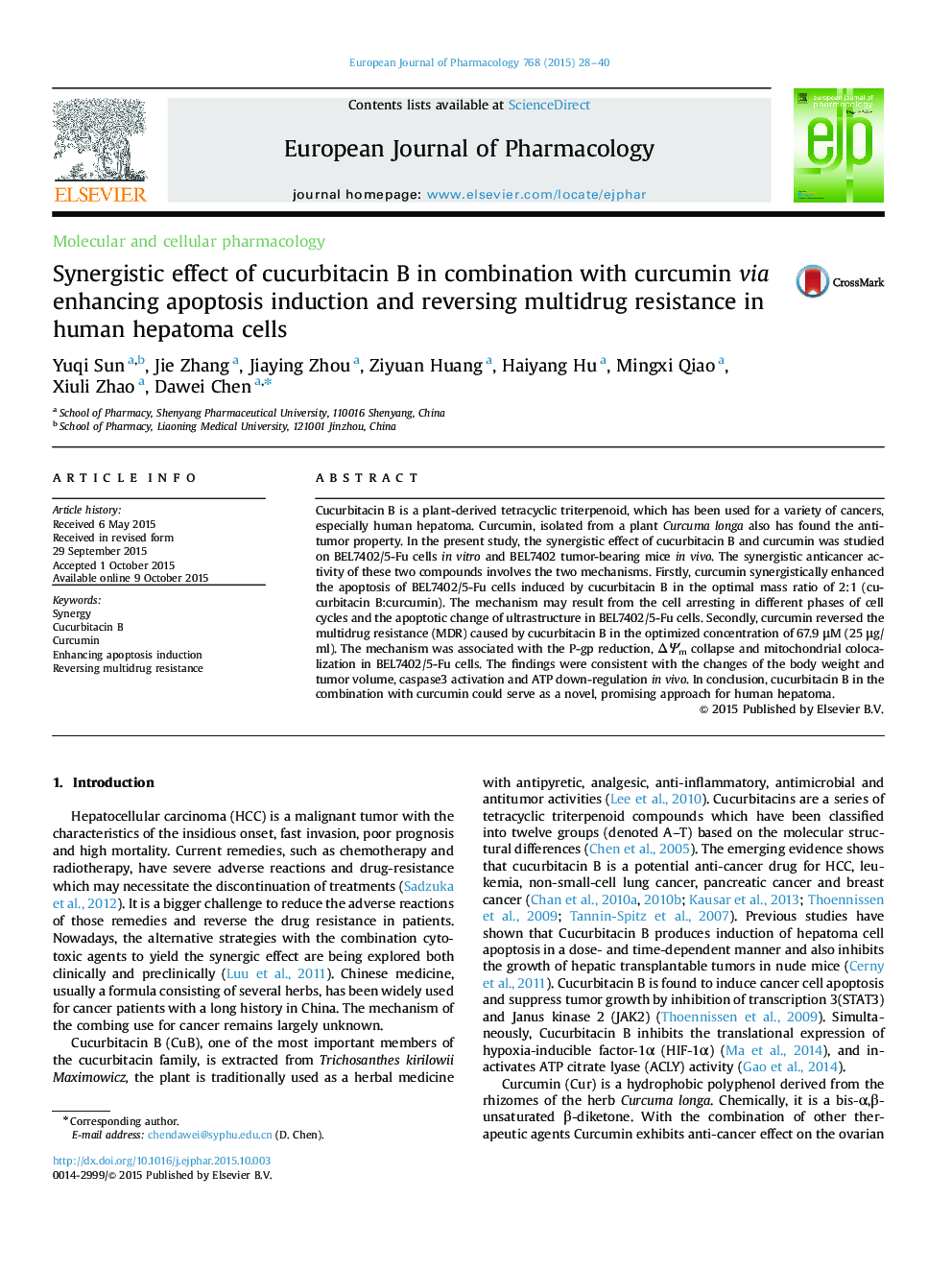| Article ID | Journal | Published Year | Pages | File Type |
|---|---|---|---|---|
| 2531239 | European Journal of Pharmacology | 2015 | 13 Pages |
Cucurbitacin B is a plant-derived tetracyclic triterpenoid, which has been used for a variety of cancers, especially human hepatoma. Curcumin, isolated from a plant Curcuma longa also has found the anti-tumor property. In the present study, the synergistic effect of cucurbitacin B and curcumin was studied on BEL7402/5-Fu cells in vitro and BEL7402 tumor-bearing mice in vivo. The synergistic anticancer activity of these two compounds involves the two mechanisms. Firstly, curcumin synergistically enhanced the apoptosis of BEL7402/5-Fu cells induced by cucurbitacin B in the optimal mass ratio of 2:1 (cucurbitacin B:curcumin). The mechanism may result from the cell arresting in different phases of cell cycles and the apoptotic change of ultrastructure in BEL7402/5-Fu cells. Secondly, curcumin reversed the multidrug resistance (MDR) caused by cucurbitacin B in the optimized concentration of 67.9 μM (25 μg/ml). The mechanism was associated with the P-gp reduction, ΔΨm collapse and mitochondrial colocalization in BEL7402/5-Fu cells. The findings were consistent with the changes of the body weight and tumor volume, caspase3 activation and ATP down-regulation in vivo. In conclusion, cucurbitacin B in the combination with curcumin could serve as a novel, promising approach for human hepatoma.
Graphical abstractFigure optionsDownload full-size imageDownload high-quality image (246 K)Download as PowerPoint slide
